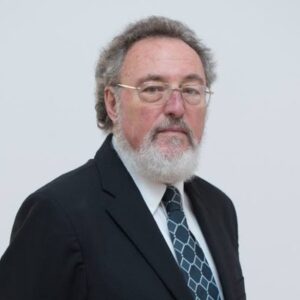Michael W. Apple was my main supervisor and mentor with the top-ranked Curriculum and Instruction Department at the Graduate School of Education at the picturesque lakeside University of Wisconsin at Madison.

The late Professor Bob Koehl in his office, surrounded by his research files on Nazi SS history, History Department, Humanities Building, UW-MADISON, 1994 (photo by Zarni)
(The other important member of my 3-member thesis committee was the late Robert L. Koehl, the pioneering historian on Himmler and SS, who, as a Wisconsin-born German American with fluency in German, interrogated Waffen SS officers in the US section of the Allied Occupied Germany at the end of the World War II.)
Any student of education – that is, curriculum and instruction, politics of textbook or “official knowledge”, cultural and economic dimension of education, gendered labor, class reproduction, schools as sites of resistance, and so on – will most certainly know the works of Michael W. Apple. Apple’s scholarship of more than half a century resulted in 32 books of which a few, such as Ideology and Curriculum (1st edition, 1979), are truly ground-breaking. His later works, for instance, “Official Knowledge” and “Educating the Right Way” are similarly influential. Some have been translated into world’s languages.
I am proud to call Mike a dear friend, a caring teacher, and a comrade of 30-odd years.
Late November last year, I paid Mike and Rima, his teenage sweetheart and wife of 60-years whom we Apple doctoral students, called “the other professor,” a visit in their “retirement” home a short walk from Wisconsin state capitol building a short walk from the Frank Lloyd Writing Convention Center. In their “retirement” – they are not the type who walk a dog and chitchat about weather along the city’s iconic lakes.

Michael W. Apple with FORSEA’s Maung Zarni, Madison, Wisconsin, 25 November 2024.
(photo by Professor Rima Apple)
As I said down to catch up with Mike in the living room, Rima, professor emeritus of the history of women in medicine, locked herself in an adjacent room, to finish some academic article she was working on. Mike had just given a long interview with a teacher’s labor union on activism and teaching.
Ever the teacher, when I emailed him and said, I wanted to do a recorded interview on scholarship and activism/resistance, he sent me, his former doctoral student, (now 61), an assignment: “you might want to read my AERA interview (AERA stands for the American Education and Research Association)”. Upon a first glance, it was 26 pages. Then it dawned on me it was double-columned! (Download HERE)
Armed with my fresh reading of my old teacher’s works and latter-day thoughts, and my old intimate knowledge of him as a teacher, a person and a fellow activist, with deep ancestral exilic roots, I marched into the couple’s home on Mill Street.
Over two consecutive days we must have talked about 6 or 7 hours.
Neither one of us does any chit-chat. After having caught up on our families, we launched into our typical conversations about the sordid state of the world, starting with the rise and rise of American Far-Right grassroots movement fanned by the US billionaire class, itself a manufactured product of unfettered Turbo-charged capitalist policies structurally rigged against the American (and global) laboring classes, both white and blue collars.
Under the deceptive veneer of “representative government”, the state in America is rooted in neither social conscience nor responsibility nor concern for We the People of USA, let alone humanity at large.
The result was a 2 hour and 15 minutes of recorded interview for FORSEA.
The interview was divided into 3 segments – 45 minutes, 30 minutes and 30 minutes.
Completely un-edited, the interview covered a wide-ranging subjects. Among the topics we explored together are Mike’s biographical background, from his childhood as a “red diaper” in a non-practicing Ukrainian Jewish family of exiled “printers”, with a strong progressive leftist politics, in the poor, racially diverse working class neighborhood in Patterson, New Jersey, his draft years in the United States Army, teaching in the military school, his doctoral student days at Teachers College, Columbia where he felt the initial discomfort in a very elite academy, the works of his academic colleagues and intellectual inspiration worldwide including, but not limited to, Paulo Freire of Brazil, Basil Bernstein and Geoff Whitty of the Institute of Education (now a part of the University College London), UK, the renown British cultural Marxist Raymond Williams and the Italian labor organizer and organic intellectual Antonio Gramsci, as well as various anti-imperialist and anti-colonial struggles and discourses globally.
Importantly, Mike re-articulated his influential analysis of education (classrooms and schools) as a site of class reproduction and more, namely the site of resistance, tied to both the political economy and cultural politics, shaped by forces beyond school boards and gendered labor force.
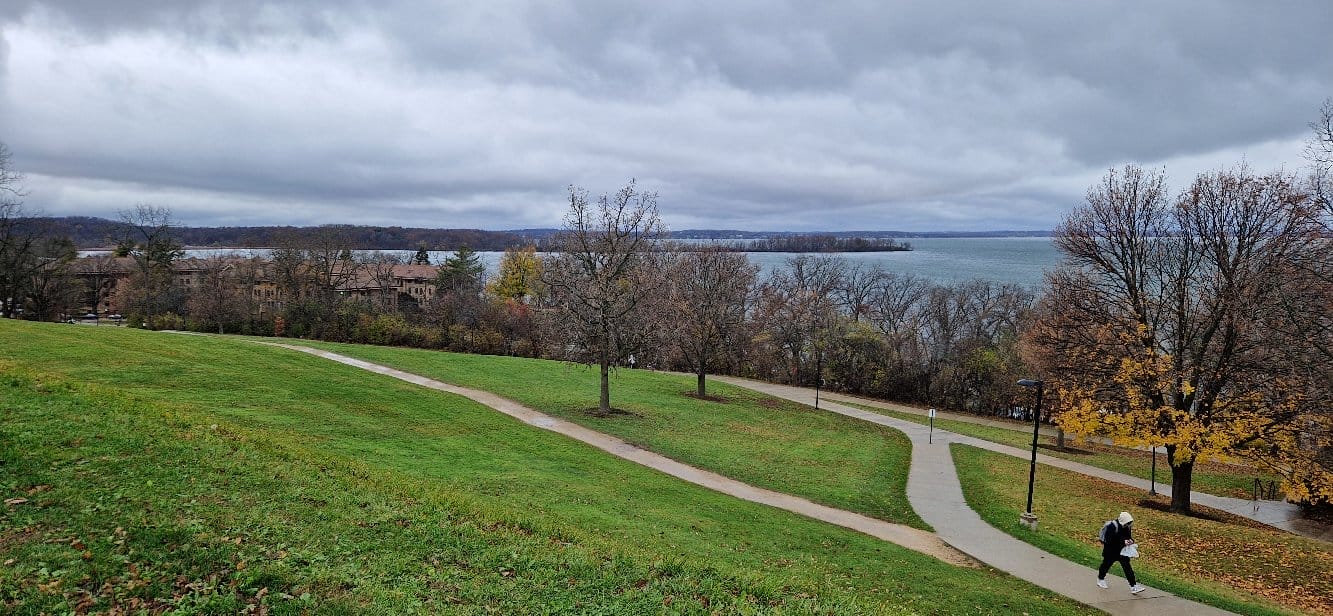
UW-Madison (over 900 acres of native American land) sits on the beautiful hilly lakeside of the largest iconic lake Mendota in Madison (photo by Zarni)
Notwithstanding his highly successful career in the Ivory Tower, Mike talked honestly about his lifelong discomfort as an academic in one of the world’s leading centers of learning. As I walked into the original Education Building on Bascom Hill, the television monitor was flashing the message that UW-Madison is home to the nation’s Number One ranked Graduate School of Education.

C and I Room 538 (the home of the Friday Seminars)
I asked him to talk about the famed, or infamous, Friday Seminar which he initiated as a Friday afternoon informal reading group in Room 538, at the Department of Curriculum and Instruction. These Friday Seminars were the site of fierce intellectual debates among Mike, many of his international academic visitors, and us doctoral students. We half-jokingly and with great affection told our mentor, “You may be the Michael Apple. But, leave your ego at the door!”
A year after he started his assistant professorship in 1971, Mike initiated the Friday seminars, where participants – academic visitors, doctoral students from and outside of education, signed up to present their research and/or anything of intellectual value, which they pick, as lead discussants. The democratic ethos of critical pedagogy was put into practice in these informal weekly sessions, and the result was both the teacher and the students – any participant – walked away with something new, intellectually exciting. For learning is never a one-way street, in the style of priestly teachers – the original teachers in Western academy, beginning at Bologna in AD 1088 – pouring something divinely revealed into heads of young pupils as if human minds were tabula rasa or empty vessels.

UW-Madison Alumni Plaza at the Memorial Student Union (photo by Zarni)
I have studied at and/or are adequately familiar with different academic institutions around the world, and there is nothing like the Friday Seminars’ intellectual vibrancy that I had intimately come to know during my 6-years at the University of Wisconsin at Madison. Commercial ratings of my old alma mater by US News and World Report aside, I was pleased with what I was experiencing as a starry-eyed young graduate student.
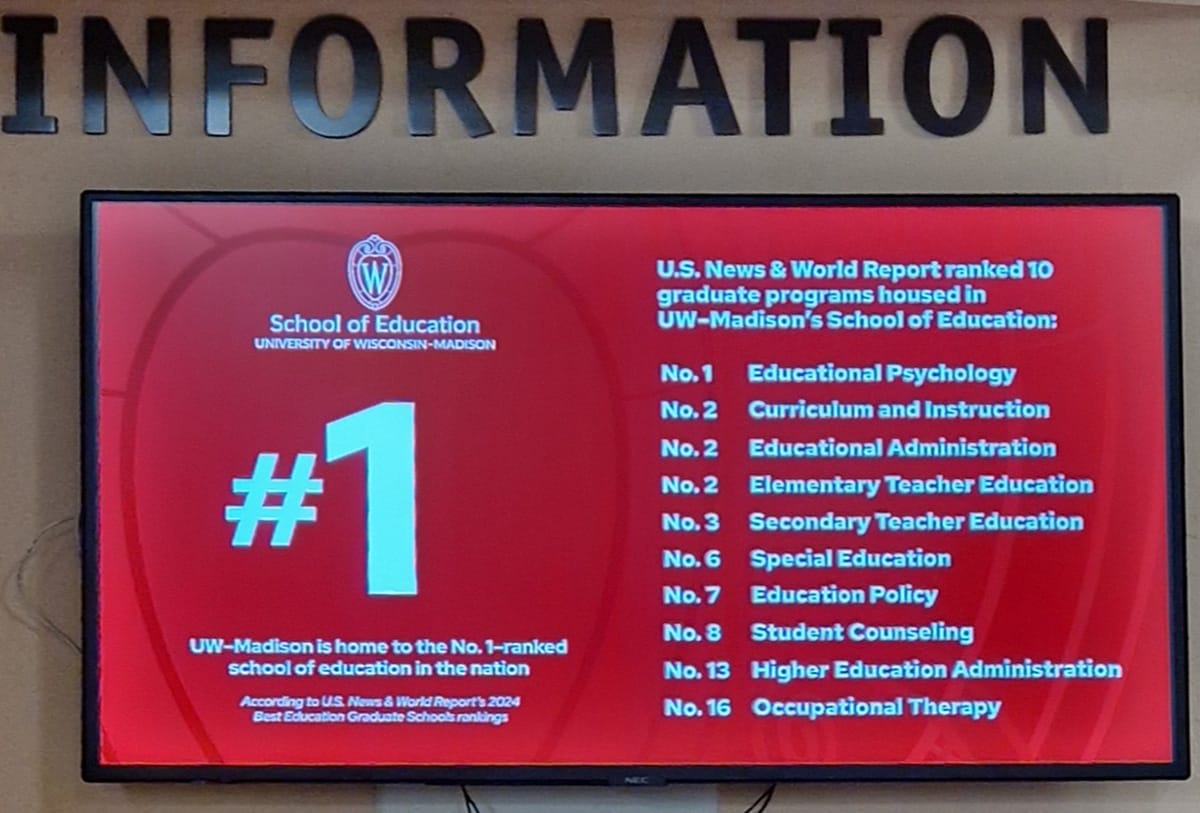
The screen in the old Education Building on Bascom Hill, UW-Madison boasts the school ranking.
(photo by Zarni).
Outside the Ivory Tower, Mike was one of the first academic, educator and activists to sound early warnings against the gradual rise of the garden variety Far Right, quintessentially American ideologies of white, class and male supremacy. He attributed this rise to the brilliant grassroots organizing by the Far-Right forces in American society, and he offered his strategic advice to fellow academics and scholars to get off their balconies, roll up the sleeves and organize!
(To an outsider with intimate knowledge of American society like me – I lived in the United States for 17 years – these ideologies display unmistakable characteristics of what in the old Europe called Fascism.)
I have always been drawn to individuals with deep exile roots. It was fascinating to learn about Mike’s background. His Jewish grandparents fled war and persecution from Tsarist Ukraine, a similar ancestral trajectory as Noam Chomsky’s whose father escaped typical conscription of young Jewish men from Belarus, then Tsarist Russia, not unlike the then Ukraine.
He talked about his grandfather gifting him Marx’s Capital, at the tender age of 10, with the unconcealed threat of “interrogating” what he had read. (My own American and British daughters read Frantz Fanon and George Orwell at home during their element school years, besides Harry Potter. So, that didn’t really surprise me.)
As an American Jew, Mike is very supportive of the Jewish Voice for Peace.
He fumed talking about the Zionist Israel’s increasingly unsuccessful attempts to justify the genocidal land grab in Palestine, arrogating to itself the right to speak for ALL Jews. He is unequivocal about his condemnation of Israel’s decades-long genocidal apartheid, and most specifically the textbook Lemkinian genocide of 2.3 million Palestinians in Gaza, “a vast open prison”, to borrow the characterization publicly made by the retired Admiral Ami Ayalon who directed Israel’s internal security agency, Shin Bet.
In a blurb about my conversation-interview with my 82-years-old teacher, it will be incomplete without mentioning his faculty adviser role – and contributions – to the grassroots organizing I was engaged in as his foreign student, around the decades-old political repression in my native country of Myanmar (or Burma).

This building, formerly named the Department of Curriculum and Instruction, was home to the Free Burma Coalition, one of the Internet’s pioneering and most successful human rights campaigns, in the 1990’s~.
(Photo by Zarni, Nov. 2024)
The Free Burma Coalition, which I helped build up and coordinated on US college and university campuses, as well as high schools, was housed within the department of curriculum and instruction, and the administrative staff were very supportive of this overtly political work of mine. Mike would make calls to senior university administrators as a show of his support as we campaigned for the University of Wisconsin System’s Burma-related investment in gas and oil sector in Burma under dictatorship. He would come out to speak at public events designed to push for social responsibility of public institutions such as universities and pension funds, having joined I as a co-panelist the likes of US Senator Tammy Baldwin (Democrat), then a Wisconsin state representative, and other Wisconsin luminaries.
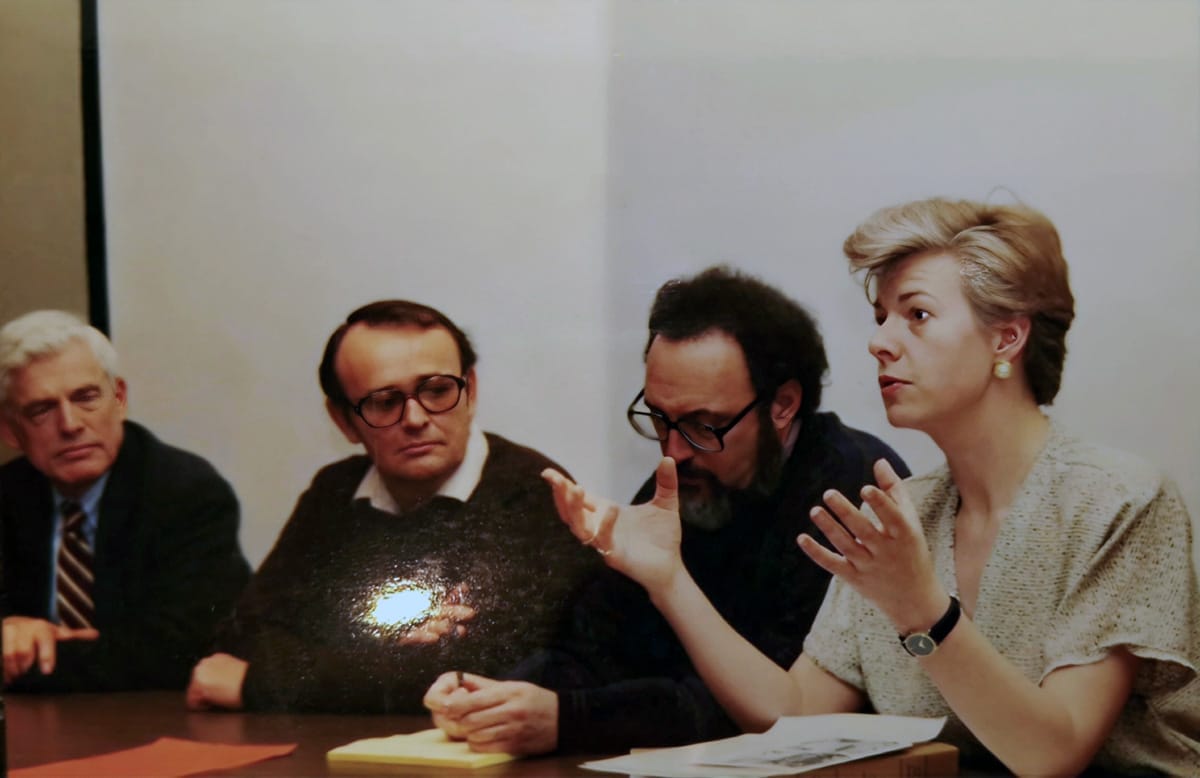
From left to right – Professor Joe Elder, Dir. of S. Asian Studies Center, labour leader, Michael Apple and State Rep. Tammy Baldwin, at an activist event on Free Burma Divestment, Memorial (Student) Union, UW-Madison, 1996.

Michael W. Apple (in white T-Shirt) with his doctoral students at a potluck, Madison, Wisconsin, Circa. 1993.
Finally, Mike has over the last 30-years stood up and spoke out for me when I was for years a subject of character assassination, multiple “cancellations” – two decades before that vile phrase “cancel culture” came into existence – including public campaigns falsely claiming that I was a fake PhD holder having never earned my degree.
To me Mike personifies the word “camaraderie”. He never forgets or forgives an academic colleague of his who crossed the picket line set up by UW-Madison graduate students demanding better wages for their invaluable teaching in the university.
These three segments of raw interview, will, undoubtedly, leave the listener with a portrait of scholar-activist who pursues an uncompromisingly progressive, principled politics while making lasting intellectual contributions to the field of critical studies in education.
___________________________________________
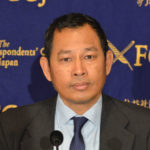 A Buddhist humanist from Burma (Myanmar), Maung Zarni, nominated for the 2024 Nobel Peace Prize, is a member of the TRANSCEND Network for Peace Development Environment, former Visiting Lecturer with Harvard Medical School, specializing in racism and violence in Burma and Sri Lanka, and Non-resident Scholar in Genocide Studies with Documentation Center – Cambodia. Zarni is the co-founder of FORSEA, a grass-roots organization of Southeast Asian human rights defenders, coordinator for Strategic Affairs for Free Rohingya Coalition, and an adviser to the European Centre for the Study of Extremism, Cambridge. Zarni holds a PhD (U Wisconsin at Madison) and a MA (U California), and has held various teaching, research and visiting fellowships at the universities in Asia, Europe and USA including Oxford, LSE, UCL Institute of Education, National-Louis, Malaya, and Brunei. He is the recipient of the “Cultivation of Harmony” award from the Parliament of the World’s Religions (2015). His analyses have appeared in leading newspapers including the New York Times, The Guardian and the Times. Among his academic publications on Rohingya genocide are The Slow-Burning Genocide of Myanmar’s Rohingyas (Pacific Rim Law and Policy Journal), An Evolution of Rohingya Persecution in Myanmar: From Strategic Embrace to Genocide, (Middle East Institute, American University), and Myanmar’s State-directed Persecution of Rohingyas and Other Muslims (Brown World Affairs Journal). He co-authored, with Natalie Brinham, Essays on Myanmar Genocide.
A Buddhist humanist from Burma (Myanmar), Maung Zarni, nominated for the 2024 Nobel Peace Prize, is a member of the TRANSCEND Network for Peace Development Environment, former Visiting Lecturer with Harvard Medical School, specializing in racism and violence in Burma and Sri Lanka, and Non-resident Scholar in Genocide Studies with Documentation Center – Cambodia. Zarni is the co-founder of FORSEA, a grass-roots organization of Southeast Asian human rights defenders, coordinator for Strategic Affairs for Free Rohingya Coalition, and an adviser to the European Centre for the Study of Extremism, Cambridge. Zarni holds a PhD (U Wisconsin at Madison) and a MA (U California), and has held various teaching, research and visiting fellowships at the universities in Asia, Europe and USA including Oxford, LSE, UCL Institute of Education, National-Louis, Malaya, and Brunei. He is the recipient of the “Cultivation of Harmony” award from the Parliament of the World’s Religions (2015). His analyses have appeared in leading newspapers including the New York Times, The Guardian and the Times. Among his academic publications on Rohingya genocide are The Slow-Burning Genocide of Myanmar’s Rohingyas (Pacific Rim Law and Policy Journal), An Evolution of Rohingya Persecution in Myanmar: From Strategic Embrace to Genocide, (Middle East Institute, American University), and Myanmar’s State-directed Persecution of Rohingyas and Other Muslims (Brown World Affairs Journal). He co-authored, with Natalie Brinham, Essays on Myanmar Genocide.
